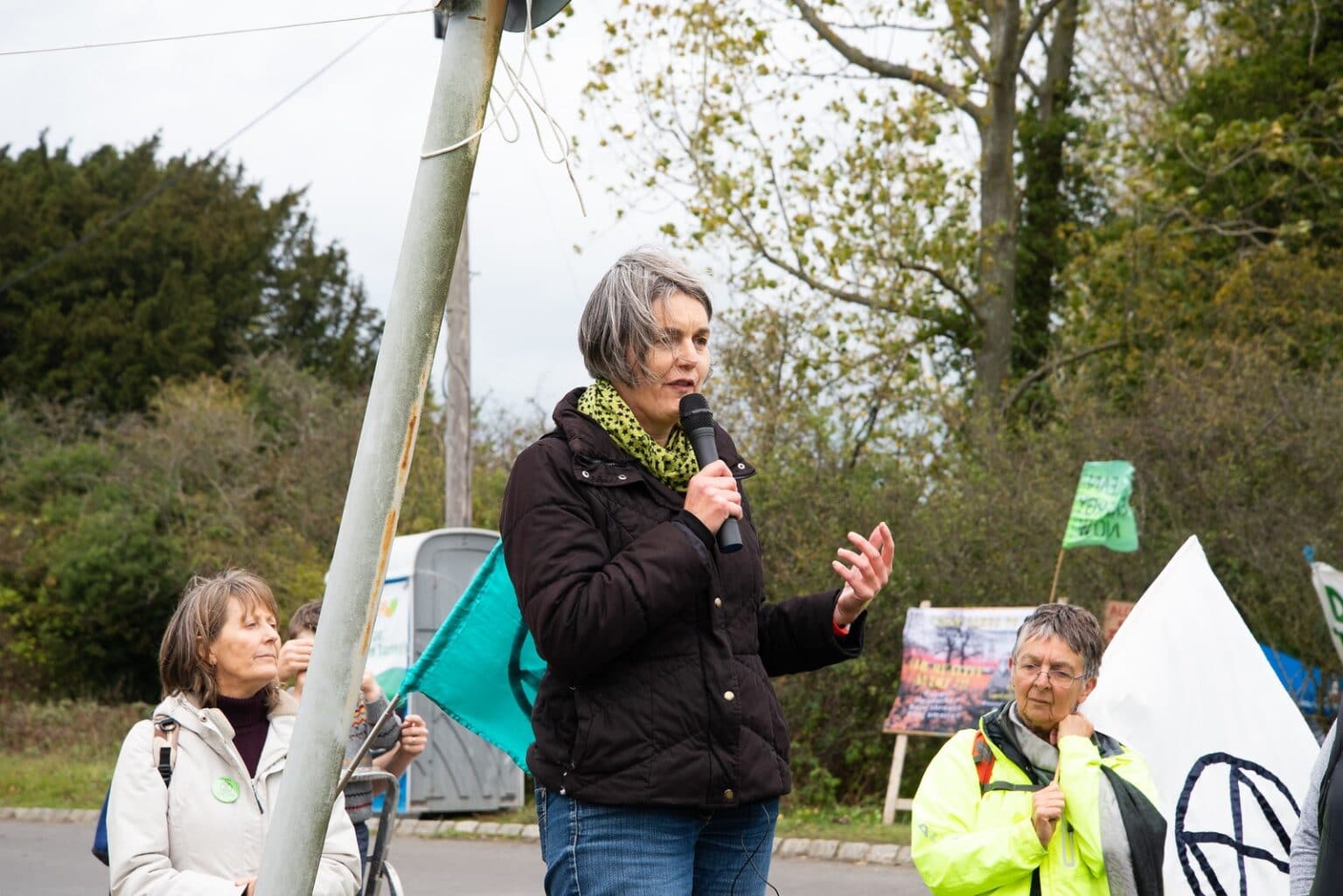Judges in the Court of Appeal have ruled that Surrey County Council acted lawfully in its approval of an onshore oil development, despite ignoring emissions produced when the fuel is eventually used.
Campaigners welcomed a decision on Thursday from one of the three judges, however, who said the council had failed to consider the full impacts of the project in its environmental assessment.
The ruling follows a more than two-year legal battle by campaigner Sarah Finch to challenge the decision to greenlight a plan for onshore drilling, which could see three million tonnes of oil extracted over its 20-year-long operation.
The council granted permission for the Horse Hill development in 2019, just months after declaring a climate emergency. Four more wells are to be added to an existing short-term site known as the “Gatwick Gusher”, along with a reinjection well for water produced during operations and other associated facilities.
Finch said she was “dismayed” by the ruling but “reassured it was not unanimous”. Katie de Kauwe, a lawyer for the environmental group Friends of the Earth (FoE), which supported Finch in the case, said in a statement the split judgment “highlights that there is not agreement, even amongst senior judges, over questions of law relating to climate change”.
Rowan Smith, a solicitor at Leigh Day who represented Finch, called it a “hugely important legal victory in the context of wider climate change litigation in the UK”.
‘Irrational’ to Ignore Indirect Emissions
The hearing in the Court of Appeal came at an awkward time, just days after the UN COP26 climate summit in Glasgow in November, with Finch, supported by campaign groups, on one side, and the council, UK government and oil company on the other.
As Drill or Drop reported, Finch’s legal team argued that the council should have considered the emissions from burning the extracted oil — known as Scope 3 emissions — in its planning permission. These emissions are an “indirect effect” of the project and Environmental Impact Assessments (EIAs) for such planning applications require scrutiny of both direct and indirect impacts, they said.
Marc Willers QC, acting for Finch, argued it would be “irrational” not to take account of downstream emissions for this type of development.
The council’s barrister Harriet Townsend, however, said that combustion was not part of the development at Horse Hill, and therefore did not require consideration in the EIA, arguing that the project would be complete “even if that crude [oil] is bought by a philanthropist and buried in the ground”.
Representing Horse Hill Developments Ltd, a subsidiary of UK Oil & Gas, David Elvin QC argued indirect emissions could be assessed further downstream at refineries.
But barrister Estelle Dehon, also representing Finch, argued the extraction process was the only point at which the entirety of the oil from the project would be assessed, as not all of it would be subject to an EIA in a refinery.
Finch, on behalf of Weald Action Group, an umbrella group for communities opposing oil and gas extraction in southern England, began legal action against the development shortly after its approval in 2019. Judge Justice Holgate heard her case for a judicial review on the project’s approval in the High Court in November 2020.
The Department for Levelling up, Housing and Communities (DLUHC) joined as an “interested party” ahead of the judicial review hearing, and acted as a respondent in the Court of Appeal case. As the Times reported, the decision to do so was apparently on the basis that the case relates to national planning policy.
The government insists it is not taking a side on the project, with a DLUHC spokesperson telling the Independent in November: “The department’s role in this appeal is in no way an expression of any view on the merits of the Horse Hill development, and concerns only the interpretation of regulations.”
DLUHC did not respond when asked which other cases it had joined on these grounds.
Divided Judgment
Appeal Court judges were tasked with reviewing the High Court’s decision to dismiss Finch’s case and determine whether Judge Justice Holgate wrongly concluded that the council did not need to consider Scope 3 emissions.
Court of Appeal judge Sir Keith Lindblom, senior president of tribunals, ruled that Judge Justice Holgate was right to dismiss the case. Lord Justice Lewison agreed with Lindblom, although “not without hesitation”.
But Lord Justice Moylan said that the EIA’s failure to “identify, describe and assess” the Scope 3 emissions that “will be produced through the commercial use of the oil extracted from the well site” means that it ultimately failed to “assess the relevant and required effects of the proposed development”.
Referring to Moylan’s decision, Sarah Finch’s lawyer Rowan Smith said in a statement that “there is now Court of Appeal authority that, when decision-makers come to consider granting planning permission for fossil fuel projects, they may be required by the law to assess the greenhouse gas emissions from the use of the extracted oil, coal or gas.”
The solicitor called the overall judgment “flawed”, however, and is advising Finch on a potential appeal to the Supreme Court.
FoE’s lawyer de Kauwe said the organisation also agreed with Moylan that the council “could and should have considered the inevitable end-use emissions arising from this fossil fuel development.”
Surrey County Council welcomed the ruling, with a spokesperson telling the BBC: “We note the judgment that our planning decision was lawful. We will review and consider the full findings of the judgment in due course.”
In a statement, Finch said: “The fact that even senior judges can’t agree on whether these ‘downstream’ emissions should be assessed in the planning process shows that we need legal certainty on the issue. How can planning authorities be expected to know what to do when even judges don’t agree?”
“Every tonne of carbon dioxide emitted will make the future situation worse — and more than 10 million tonnes could be produced as a result of this development,” she added.
Subscribe to our newsletter
Stay up to date with DeSmog news and alerts







